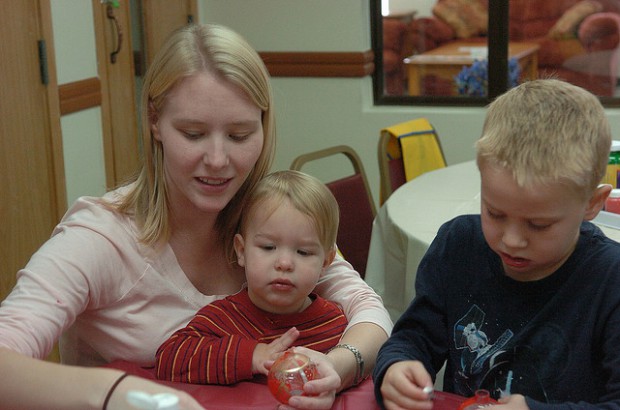‘I used to think that my job as Parent was all about getting my kids to behave,’ sighed Jane. ‘Now that I’ve done a Parenting course, I’ve become so much more aware of good parenting – that how I AM impacts my kids. I get worried I’m a bad parent. How do I stop myself losing my cool with my kids? When I end up shouting at my kids or doing something in my parenting that I know is not helpful, I feel really bad about it. I feel I like a failure as a parent.’

The concern Jane was sharing is one that challenges many parents. As Jane discovered more about how to parent in a way that really gets through to her kids, she became more aware of how she was interacting as a parent, and she found that she was becoming more self-critical. She started noticing that her approach to her children and her behaviour as parent had a direct knock-on effect in the home. This was great when things went well. Then she could pat herself on the back. But it also laid her open to self-blame when there was a hiccup in the family.
‘I’m being so hard on myself when things don’t go well at home, ‘ she said.
‘It makes sense that you’re hard on yourself because you know how you want to be as a parent,’ I responded. ‘It’s rather like when you’ve been out in the garden all evening. Imagine. You come into the house. You glance in the mirror without turning the light on. You most probably won’t even realise that there’s a smudge of dirt on your chin. But if you stop and turn on the light and take a hard look in the mirror, you’ll see the dirt and know you have some cleaning up to do.’
That’s how I see our increased awareness in parenting. We’ll see things we need to clean up. The issue isn’t whether we made a mistake, the issue is are we going to choose to learn from the mistakes we make. As Oprah says, ‘I do the best I know how. And when I know better, I do better.’ So when I’m aware that I’ve done something that wasn’t helpful in my relationships, I can reflect on it and choose to do something different. But if I stay in the dark I won’t even recognise that I have anything to clean up. So noticing the ways in which our parenting isn’t helpful is actually a big step forward!
And it’s important how we handle ourselves. If you’re anything like me, you grab a big stick (metaphorically speaking) and beat yourself up. ‘You should have known better.’ ‘There you go again – don’t you ever learn!’
Or whatever your own personal version is of giving yourself a hard time!
When I verbally beat myself up, my brain releases cortisol. I experience stress. Doesn’t feel good. And it isn’t good for my body- especially if repeated frequently. (Imagine how it would be for your child if you verbally beat him up several times a day!)
If I want to be a kind, connected parent it begins with being kind and connected to myself. I’ll only be able give to my children what I give to myself. You won’t be able to give your children caring, patience and understanding if you don’t give yourself caring, patience and understanding.
So, if you’re unhappy about the small everyday issues that get in the way of you being the parent you choose to be, the bottom line is: choose to be kind to yourself. Here are ten positive parenting tips on how to be the parent you want to be.
1. Avoid grumbling at yourself.
2. Avoid self-criticism.
3. Avoid labeling yourself. (‘Bad parent’ – or your own personal variation!)
4. And avoid my personal favourite: beating myself up for beating myself up!
5. Avoid any other self-talk that makes you feel shamed and uncomfortable with yourself.
6. Acknowledge what’s working.
7. Say sorry to your kids if you ‘blew it’.
8. Figure out what you want to do differently next time round.
9. Do this with the kindness and caring that you’d like to be give to your child when you’re trying to help him learn something important.
10. Life’s a journey. Pick the daisies along the way.
Related Posts: How to Have a Happy Child


I take on board these ideas. It is interesting to think about the effect of stress on the body – I had never thought about this effect also occuring in the child´s body when they are verbally attacked for example. I am so much more aware of my own parenting now, and when I there has been a ´blow-up´I make a point of reconnecting after and talking it through. This did not happen for me growing up and I remember how confused I was afterwards and upset. So I am picking the daisies and smelling the flowers along the way!